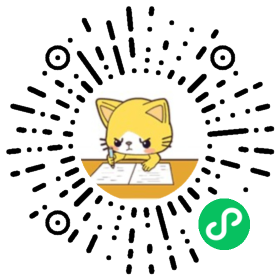【单选题】
区分不变资本和可变资本的依据是资本的不同部分( )?
A. 在生产中位置是否移动
B. 在运动中职能是否变化
C. 在价值增殖中的作用不同
D. 根据价值周转方式不同
查看试卷,进入试卷练习
微信扫一扫,开始刷题

相关试题
【单选题】
能准确反映资本家对工人剥削程度的因素是( )?
A. 工人工资的高低
B. 工人劳动时间的长短
C. 工人劳动强度的大小
D. 剩余价值率的高低
【单选题】
资本主义基本矛盾是( )?
A. 生产与需要的矛盾
B. 无产阶级和资产阶级的矛盾
C. 生产力和上层建筑的矛盾
D. 生产社会化和生产资料资本主义私人占有的矛盾
【单选题】
资本主义经济危机的实质是( )?
A. 生产过剩的经济危机
B. 生产不足的经济危机
C. 生产相对过剩的经济危机
D. 生产严重短缺的经济危机
【单选题】
资本主义经济危机的根源在于( )?
A. 货币的流通手段职能
B. 货币的支付手段职能
C. 资本主义基本矛盾
D. 人口过剩与资本过剩的矛盾
【单选题】
产业资本在其循环运动中所采取的三种职能形式是( )?
A. 固定资本.流动资本.货币资本
B. 不变资本.可变资本.商品资本
C. 产业资本.商业资本.借贷资本
D. 货币资本.生产资本.商品资本
【单选题】
资本的周转时间包括( )?
A. 劳动时间和产品的销售时间
B. 产品的购买时间和生产时间
C. 生产时间和流通时间
D. 劳动时间和购买时间
【单选题】
把生产资料区分为固定资本和流动资本,其依据是( )?
A. 在生产过程中不同的价值周转方式
B. 在生产过程中不同的物质存在形态
C. 不同部分在剩余价值生产中的不同作用
D. 不同部分的不同运动速度
【单选题】
商品价值量是由生产商品的社会必要劳动时间决定,它是在( )?
A. 同类商品的生产者之间的竞争中实现的
B. 不同部门之间的竞争实现的
C. 商品的生产者和消费者之间的竞争中实现的
D. 商品的生产者和销售者之间的竞争中实现的
【单选题】
生产要素按贡献参与分配的经济依据是( )?
A. 抽象劳动是价值的唯一源泉
B. 生产要素所有权在经济上的实现
C. 生产要素都创造了价值
D. 生产要素不创造价值但可以参与分配
【单选题】
资本主义生产方式的绝对规律是( )?
A. 生产剩余价值或赚钱
B. 生产使用价值或商品
C. 生产价值
D. 生产和再生产劳动力供资本家使用
【单选题】
下列选项中属于不变资本又属于固定资本的是( )?
A. 原料
B. 燃料
C. 辅助材料
D. 机器.设备
【单选题】
利润本质上是( )?
A. 成本价格的产物
B. 所费资本的产物
C. 全部预付资本的产物
D. 剩余价值
【单选题】
商品的使用价值和价值的关系是( )?
A. 完全对立的关系
B. 对立统一的关系
C. 完全统一的关系
D. 没有关系
【单选题】
利润率是( )?
A. 剩余价值与可变资本的比率
B. 剩余价值与不变资本的比率
C. 剩余价值与所费资本的比率
D. 剩余价值与预付总资本的比率
【单选题】
平均利润率的形成是( )?
A. 不同部门的资本家之间竞争的结果
B. 同一部门内部的资本家之间竞争的结果
C. 同一部门资本家追求超额利润的结果
D. 资本有机构成提高的结果
【单选题】
把剩余价值看成是全部预付资本的产物,就转化为( )?
A. 成本价格
B. 生产价格
C. 利润
D. 利息
【单选题】
商品的二因素之所以是使用价值和价值,而不是使用价值和交换价值,是因为 ( )?
A. 商品的二因素是由生产商品的劳动二重性决定的
B. 价值是交换价值的内容和基础,交换价值是价值的表现形式
C. 使用价值是价值的物质承担者
D. 价值是一般人类劳动的凝结
【单选题】
马克思在研究商品时,之所以考察使用价值,因为使用价值是( )?
A. 构成财富的物质内容
B. 人类生存.发展的物质条件
C. 满足人们需要的物质实体
D. 商品交换价值的物质承担者
【单选题】
马克思指出:“如果物没有用,那么其中包含的劳动也就没有用,不能算作劳动。因此不形成价值。”这段话说明( )?
A. 价值的存在以物的有用性为前提
B. 价值的存在与物的有用性互为前提
C. 只要物是有用的,它就有价值
D. 物越是有用就越有价值
【单选题】
商品二因素中的价值是( )?
A. 商品的自然属性
B. 商品的社会属性
C. 交换价值的物质承担者
D. 交换价值的表现形式
【单选题】
理解马克思主义政治经济学的枢纽是( )?
A. 剩余价值学说
B. 生产价格理论
C. 劳动二重性学说
D. 劳动力商品理论
【单选题】
货币具有五种职能( )?
A. 价值尺度.流通手段.贮藏手段.支付手段.世界货币
B. 价值尺度.流通手段.贮藏手段.支付手段.协调手段
C. 世界货币.流通手段.贮藏手段.支付手段.协调手段
D. 价值尺度.流通手段.贮藏手段.支付手段.干预手段
【单选题】
生产商品的劳动二重性是指( )?
A. 简单劳动和复杂劳动
B. 私人劳动和社会劳动
C. 具体劳动和抽象劳动
D. 生产劳动和非生产劳动
【单选题】
商品生产者要获得更多的收益,必须使生产商品的个别劳动时间( )?
A. 大大高于社会必要劳动时间
B. 低于社会必要劳动时间
C. 等于社会必要劳动时间
D. 略高于社会必要劳动时间
【单选题】
资本家改进技术提高劳动生产率的直接目的是( )?
A. 提高产品的质量
B. 减轻劳动强度
C. 获取相对剩余价值
D. 获取超额剩余价值
【单选题】
相对剩余价值的获得是( )?
A. 延长工人劳动时间的结果
B. 社会普遍提高劳动生产率的结果
C. 普遍提高工人劳动强度的结果
D. 个别资本家提高劳动生产率的结果
【单选题】
当代资本主义国家政治制度的核心内容是( )?
A. 政党制度
B. 国家制度
C. 文官制度
D. 议会制度
【单选题】
资产阶级意识形态的核心是( )?
A. 利己主义
B. 利他主义
C. 集体主义
D. 享乐主义
【单选题】
马克思说:“一切商品对它们的所有者是非使用价值,对它们的非所有者是使用价值。”对这句话应理解为( )?
A. 商品不可能既有使用价值又有价值
B. 商品所有者同时获得使用价值和价值
C. 使用价值是商品的本质属性
D. 商品的使用价值和价值是相互排斥的
【单选题】
某工厂原工作日为八小时,必要劳动时间和剩余劳动时间各为四小时,若采用绝对剩余价值生产方法,增加剩余劳动时间二小时,则剩余价值率为( )?
A. 120%
B. 150%
C. 180%
D. 200%
【单选题】
某工厂原工作日为八小时,必要劳动时间和剩余劳动时间各为四小时,若采用相对剩余价值生产方法,增加剩余劳动时间二小时,则剩余价值率为( )?
A. 100%
B. 300%
C. 200%
D. 250%
【单选题】
在简单商品经济中,价值规律作用的表现形式是( )?
A. 商品价格与价值经常保持一致
B. 商品价格围绕价值上下波动
C. 商品价格围绕生产价格上下波动
D. 商品价格围绕垄断价格上下波动
【单选题】
资本主义扩大再生产的重要源泉是( )?
A. 剩余价值
B. 可变资本
C. 资本积累
D. 剩余劳动
【单选题】
货币的本质是( )?
A. 价值符号
B. 流通手段
C. 支付手段
D. 固定充当一般等价物的特殊商品
【单选题】
资本的有机构成可表示为( )?
A. c∶v
B. m∶c
C. c∶m
D. m∶v
【单选题】
马克思主义政治经济学的直接理论来源是( )?
A. 重商主义
B. 古典政治经济学
C. 庸俗政治经济学
D. 空想社会主义的经济理论
【单选题】
解决商品内在使用价值和价值矛盾的关键是( )?
A. 货币的出现
B. 私人劳动与社会劳动的划分
C. 商品交换的实现
D. 社会分工的不断发展
【单选题】
形成商品价值量的劳动,是以( )?
A. 社会劳动为尺度
B. 私人劳动为尺度
C. 简单劳动为尺度
D. 抽象劳动为尺度
【单选题】
价值规律在对经济活动进行自发调节时,产生的消极后果,不包括( )?
A. 导致社会资源浪费
B. 阻碍技术的进步
C. 导致收入两极分化
D. 自发的刺激生产力的发展
【单选题】
货币是在长期的交换过程中形成的固定充当( )?的商品
A. 一般等价物
B. 等价交换
C. 交换价值
D. 使用价值
推荐试题
【判断题】
27:公司类不良贷款每季度至少进行一次尽职调查,个人类不良贷款每季度至少进行两次尽职调查
【判断题】
28:不良贷款清收处置可选择一种或综合运用多种方式,在同等条件下,非现金清偿优先于现金清偿
【判断题】
29:各支行不得擅自聘请委托诉讼代理人
【判断题】
30:对新形成的本金或利息逾期90天未收回的不良贷款,自形成不良之日起9个月内全面诉讼,确保笔笔起诉,依法维护债权
【判断题】
1: 中华人民共和国民法总则于2017年3月15日,经第十二届全国人民代表大会第五次会议通过
【判断题】
2:民法调整平等主体的自然人、法人和非法人组织之间的人身关系和财产关系
【判断题】
3:民事主体的人身权利、财产权利以及其他合法权益受法律保护,任何组织或者个人不得侵犯
【判断题】
4:民事主体在民事活动中的法律地位一律平等
【判断题】
5:民事主体从事民事活动,应当遵循自愿原则,按照自己的意思设立、变更、终止民事法律关系
【判断题】
6:民事主体从事民事活动,应当遵循公平原则,合理确定各方的权利和义务
【判断题】
7:民事主体从事民事活动,应当遵循诚信原则,秉持诚实,恪守承诺
【判断题】
8:民事主体从事民事活动,不得违反法律,但可以违背公序良俗
【判断题】
9:自然人从出生时起到死亡时止,具有民事权利能力,依法享有民事权利,承担民事义务
【判断题】
10:自然人的出生时间和死亡时间,以出生证明、死亡证明记载的时间为准;没有出生证明、死亡证明的,以户籍登记或者其他有效身份登记记载的时间为准。即使有其他证据足以推翻以上记载时间,也不得以该证据证明时间为准
【判断题】
11:涉及遗产继承、接受赠与等胎儿利益保护的,胎儿视为具有民事权利能力。但是胎儿娩出时为死体的,其民事权利能力自始不存在
【判断题】
12:十八周岁以上的自然人为成年人。不满十八周岁的自然人为未成年人
【判断题】
13:不能辨认自己行为的成年人为限制民事行为能力人,由其法定代理人代理实施民事法律行为
【判断题】
14:无民事行为能力人、限制民事行为能力人的监护人是其法定代理人
【判断题】
15:自然人以户籍登记或者其他有效身份登记记载的居所为住所;经常居所与住所不一致的,经常居所视为住所
【判断题】
16:父母是未成年子女的监护人。未成年人的父母已经死亡或者没有监护能力的,由下列有监护能力的人按顺序担任监护人:(一)兄、姐;(二)祖父母、外祖父母;(三)其他愿意担任监护人的个人或者组织,但是须经未成年人住所地的居民委员会、村民委员会或者民政部门同意
【判断题】
17: 被监护人的父母担任监护人的,可以通过遗嘱指定监护人
【判断题】
18: 依法具有监护资格的人之间不可协议确定监护
【判断题】
19:对监护人的确定有争议的,由被监护人住所地的居民委员会、村民委员会或者民政部门指定监护人,有关当事人对指定不服的,可以向人民法院申请指定监护人;有关当事人不可以直接向人民法院申请指定监护人
【判断题】
20:监护人被指定后,不得擅自变更;擅自变更的,免除被指定的监护人的责任
【判断题】
21:具有完全民事行为能力的成年人,可以与其近亲属、其他愿意担任监护人的个人或者组织事先协商,以书面形式确定自己的监护人
【判断题】
22:监护人应当按照最有利于被监护人的原则履行监护职责。监护人除为维护被监护人利益外,不得处分被监护人的财产
【判断题】
23:自然人下落不明的时间从其失去音讯之日起计算
【判断题】
25:自然人被宣告死亡但是并未死亡的,不影响该自然人在被宣告死亡期间实施的民事法律行为的效力
【判断题】
2:固定资产购置按预算编制由总行专业部门负责有序购置
【判断题】
3:支出管理中发生在5000元(含)以上的费用支出必须依据发票单位进行转帐,可以支付现金
【判断题】
4:报销粘贴单的票据张数、大小写金额、发票序号、发票经办人、粘贴人等要素应填写齐全,且不得涂改
【判断题】
1:享档档起存金额1万元,存期1年,存取灵活,支持多次支取,享活期便利定期收益,按实际存期向下靠档计息
【判断题】
2:个人手机银行开通指纹登录后即可进行5万元以上的转账交易
【判断题】
3:某客户办理了我行个人电子银行,之后由于出差身在外地,加之手机丢失,让其家人拿户口本前来变更手机号,柜员考虑到情况特殊,直接进行了变更,其做法是否正确
【判断题】
4:个人客户开立电子银行必须到账户开户网点办理
【判断题】
5:新版手机银行中,客户使用“验证码+密码”认证方式时,所输入的密码为客户设定的支付密码
【判断题】
6:手机银行登录密码遗忘时客户必须到我行营业网点进行重置
【判断题】
7:客户有我行金燕卡,之前并未在我行开立过电子渠道,可直接下载我行手机银行APP,自主注册成为我行手机银行客户
【判断题】
8:张三是我行电子银行个人客户,开通了转账单笔5000万元的特殊限额业务,某日通过网银单笔跨行转出5000万元后,又欲通过我行手机银行跨行转出5万元,咨询我行工作人员,我行工作人员告知其无法转出,必须到柜面办理。是否正确?
【判断题】
9:李四是我行电子银行个人客户,开通了转账单笔5000万元的特殊限额业务,某日通过网银单笔跨行转出5000万元后,又欲通过我行手机银行向其本人同行账户转出5万元,咨询我行工作人员,我行工作人员告知其无法转出,必须到柜面办理。是否正确?



